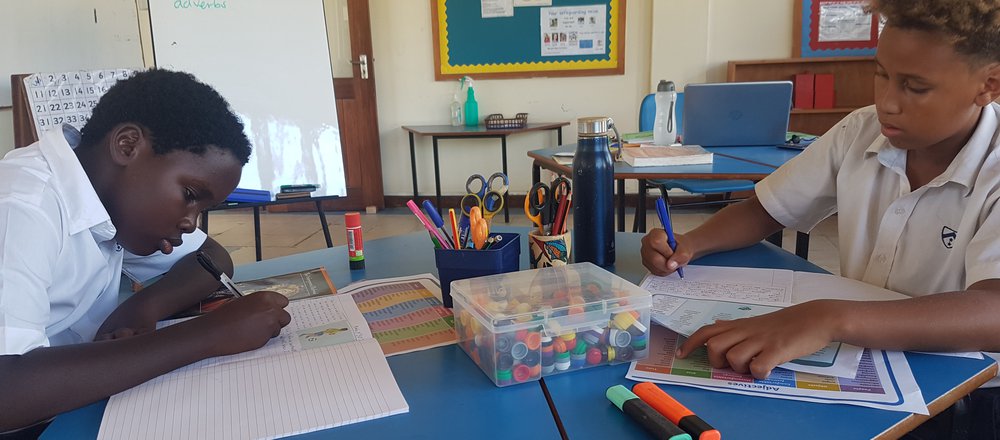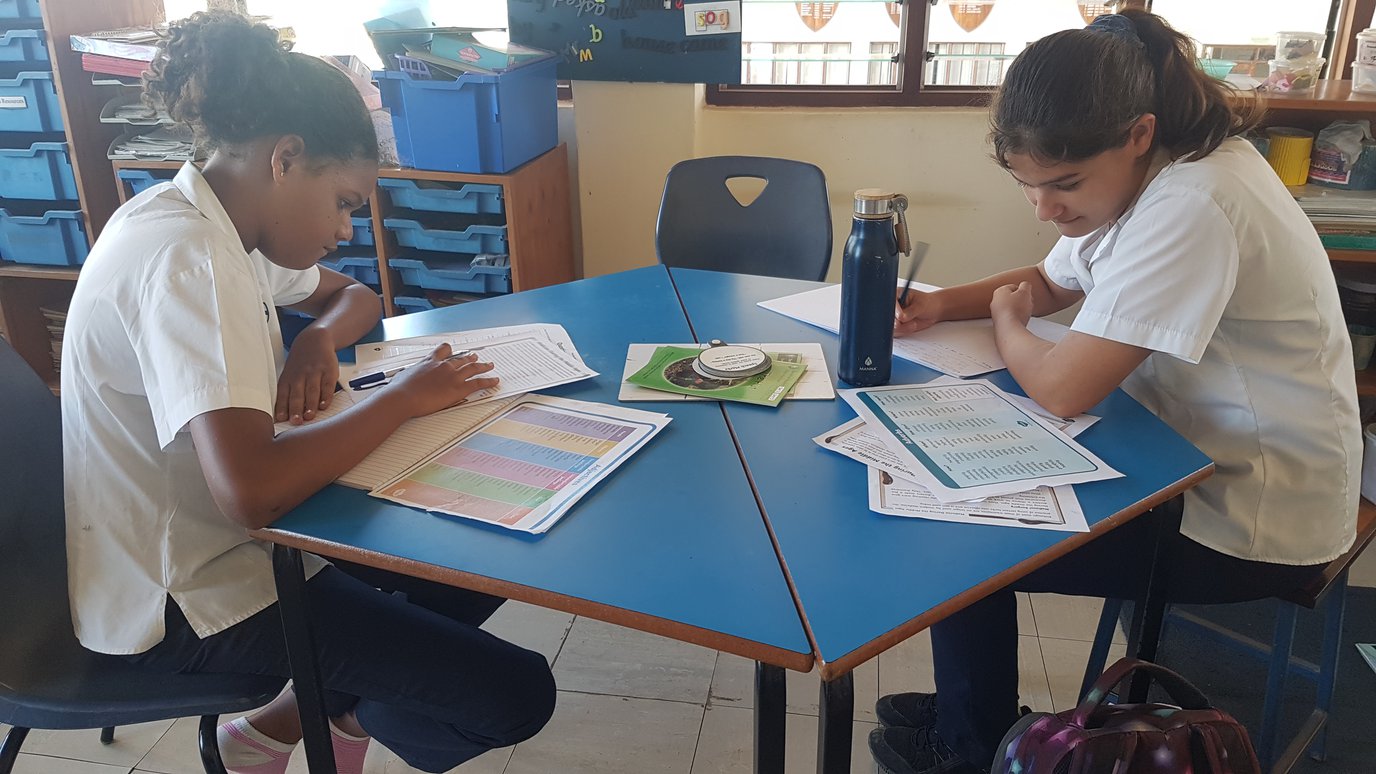Using my ‘tool kit’ – before I ask the teacher

10th February 2023
Using my ‘tool kit’ – before I ask the teacher
In an educational institution, such as BMIS, that takes teaching and learning as a core in the children’s development, teaching and guiding learners to manage their learning is a day to day active process – this process is regarded as metacognition. In learning support, metacognition is a central area of focus that is practised in all lessons. Learning support is more than the help given in academic subjects thus includes helping learners learn how to learn. The inclusion teachers’ role is to provide a range of opportunities for learners to take a leading role in making decisions regarding their learning process.
To be exact, apart from using questioning as a way of making learners reflect deeper into their learning and provide solutions for their learning challenges, we also provide tangible manipulatives that assist students with immediate help or guidance even before asking for teachers’ help. In this given tool kit, in mathematics, we have times table charts, 100 square charts, place value charts, calculators and place value blocks. In English, we have a range of word banks, spelling lists, modeled tasks, and punctuation fans. The idea in metacognition practice is to make learners interrogate their learning, provide self-initiated solutions and eliminate helplessness.
Where applicable, encourage your child to build their own ‘tool box’ at home, without over relying on the internet, where he or she could consult first, before seeking adult support. A consistent use of this practice will in turn develop our learners with sufficient attitudes to understand and manage their learning process.
Some of the students, in learning support, were asked to share what they do to help themselves during learning and this is what they had to say:
Hendrika (Year 9): “In Maths, I am learning to use my notes and use a calculator to confirm my answers. In English, I look at my notes and use word lists.”
Poul (Year 10): “Before I ask for help, in learning support, I first check with my calculator, teaching examples and word banks in English.”
Mikaela (Year 9): “For me, I try to read the questions again, use adverbs and adjectives lists and in Maths I use formulas and a multiplication square.”
Denis (Year 7): “When doing my work, before I ask for help from someone, I think about the task again and I use a calculator in Maths.”
Mr Cornelius Ondieki
Inclusion Leader







